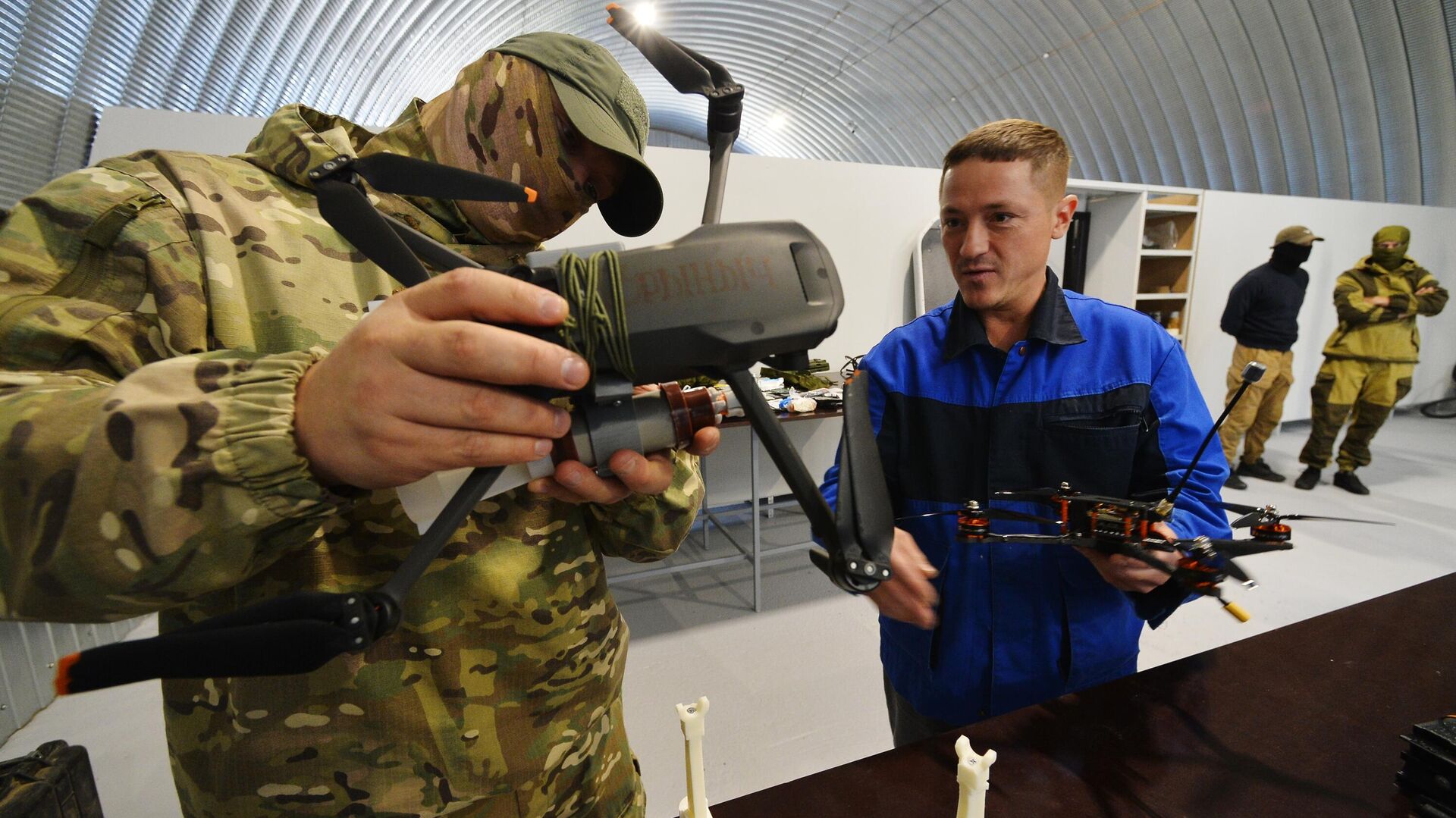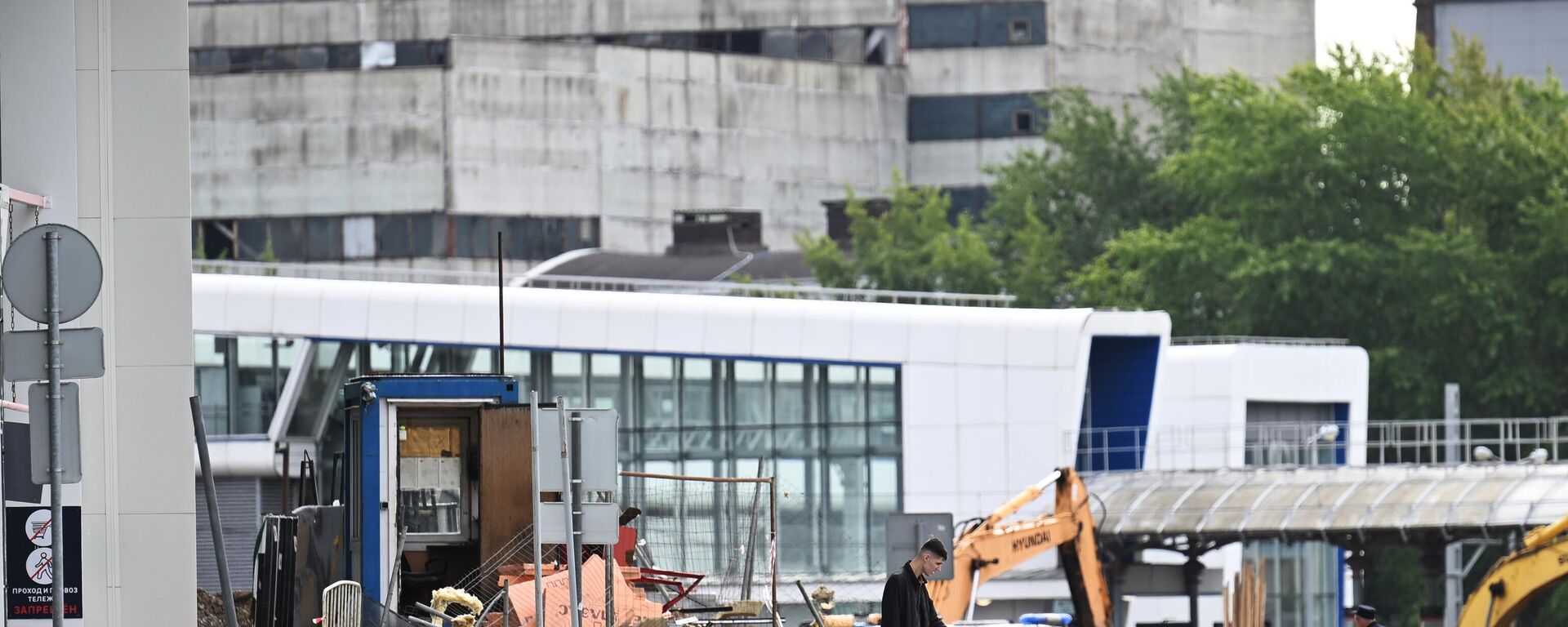Russia Should Go One Step Ahead of Competitors in Unmanned Aviation, Prime Minister Says

© Sputnik . Alexander Kondratyuk
/ Subscribe
Unmanned aerial vehicles are widely used in modern military operations. This trend has intensified with the start of Russia's special military operation in Ukraine, both sides often resort to this type of equipment. Therefore, the need for Russia's unmanned aviation development has become more obvious.
Russia should go one step ahead of its competitors in the field of unmanned aviation, there are all opportunities for this, the country's Prime Minister Mikhail Mishustin said.
"In such an area as unmanned aviation, we must go one step ahead of our competitors. And I believe that there are all opportunities for this," Mishustin said on Tuesday at a strategic session on the development of unmanned aircraft systems.
In order for the country to take its rightful place in this promising market, a systematic approach is needed, the prime minister stressed.
In addition, Mishustin underlined that it is planned to double the production of unmanned aerial vehicles in Russia in seven years.
"The number of light drones today already numbers in the tens of thousands, but they are still mostly manufactured by technology enthusiasts. We need to systematize and scale production. Over the next 7 years, we plan to almost double the volume of the Russian market of heavy and medium-sized vehicles," he highlighted.
The prime minister also said that there are several important tasks for the state to complete in this field from the formation of the industrial base of software, infrastructure, support for the demand for orders from departments, regions and state-owned companies, and to the development, respectively, of scientific and technological competencies, design and domestic engineering schools.
Moreover, according to him, the leaders in the use of drones in the civil sphere are the energy sector, construction, agriculture, and they are also used for the needs of geodesy and cartography.
"Gradually, unmanned technologies are being tested in related industries, such as road transport, shipping," Mishustin listed.
Furthermore, the prime minister noted that the country expects to achieve this goal not only by creating innovative technology, but also by expanding services based on it, which are in demand by consumers today.
He drew attention to the fact that it will be possible to use drones in various fields: from delivery to remote settlements to the prevention of emergencies, accidents and other tasks.
Speaking about other measures for the development of unmanned aviation, Mishustin revealed that over 1 million specialists in unmanned aviation are planned to be trained in Russia.
"Digital solutions will appear for developers, manufacturers, users and operators. And also, as we expect, over 1 million specialists will be trained," he said.
According to him, the Russian authorities see that the use of drones increases the operational efficiency of enterprises. For example, in the field of agriculture, labor productivity has doubled when processing plants with protective means, the prime minister explained.
"And in the energy sector, the risk of accidents has decreased by eight times due to the inspection of power transmission lines. Moreover, the speed of inspections has increased fivefold. In the fuel sector, the cost of air patrolling the gas pipeline has decreased three times. Well, the duration of work has been reduced by 70%," the head of the government cited the data.
Mishustin added that new technologies will give impetus to the structural restructuring of the entire economy, including the fuel and energy complex, the agricultural and industrial sector, mechanical engineering, as well as increase their operational efficiency.
"The emergence of such high-tech industries is extremely necessary for the economy and people. This will make it possible to form new and improve existing services and, very importantly, increase the availability of a number of services," he concluded, noting: "It is very important to attract our young people to this area. They are happy to be interested in such promising projects."
Last Sunday, the Russian Security Council stated that since the start of the Russian special operation in Ukraine, more than 70 major terrorist attacks, including on energy facilities, military and civilian aircraft, have been prevented in Russia.
Earlier, the Kremlin spokesman Dmitry Peskov said that the Kiev regime has not ceased its terrorist activity, conducting an alarming number of drone attacks targeting civilian infrastructure.
Kremlin commented on the Kiev regime's systematic attempts to target Russian territory with drones by saying that Russian troops will continue to carry out special operation to eradicate such threats.


